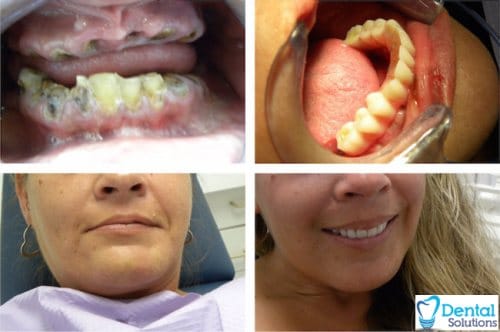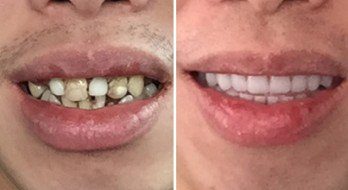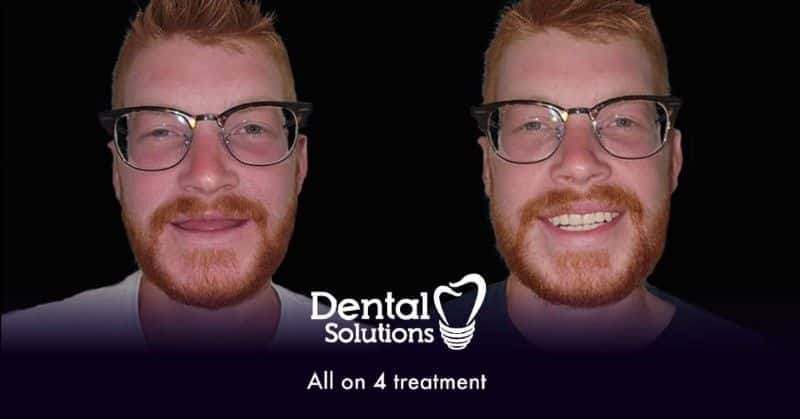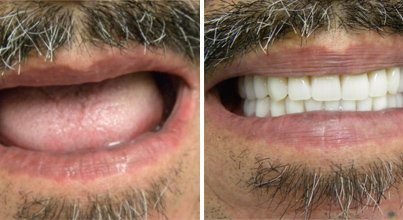Restoring your smile with all-on-4 dental implants
The loss of the whole dentition is a huge cosmetic and health problem. The facial features change, as the chin protrudes, lips lose volume, the corners of the mouth fall, and facial muscles lose tone. Also, the tongue moves back and reduces the oral cavity. These changes affect speech and hearing, as they may affect the Eustachian tube causing hearing loss.
The fall of natural teeth of the upper jaw breaks lip harmony, flattening the mouth and hardening expression while the cheeks sink. Moreover, the fall of the upper teeth creates problems in phonetics because words can’t be pronounced properly. Also, the chewing function is seriously compromised!
This is why dental implants are more than a cosmetic problem. They become a necessity for people that are missing teeth so they don’t risk their well-being. The most efficient solution for this are the All-on-4 dental implants, an advanced technique for restoring an entire arch of teeth with minimal invasion and fewer implants.






